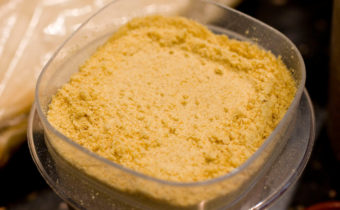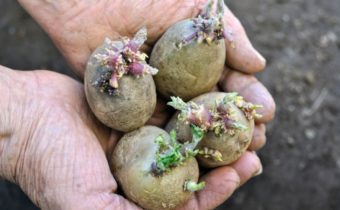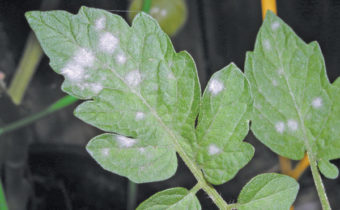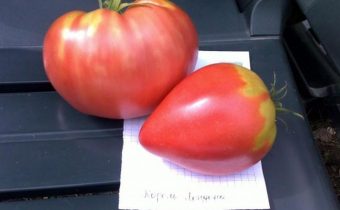Tomato "French Mardin": a popular variety among amateurs and professionals
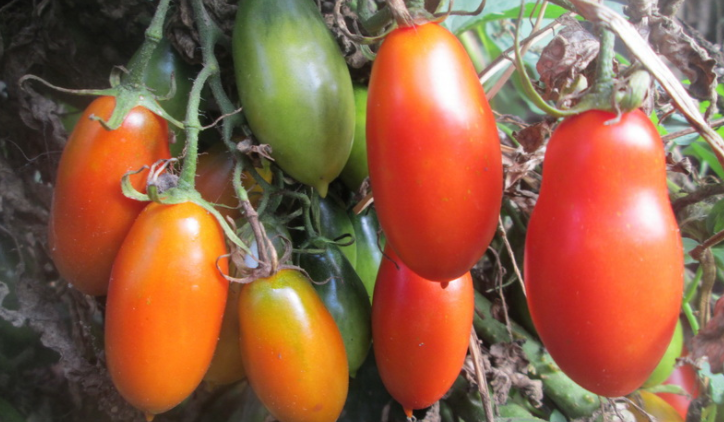
This variety is quite young, bred by Russian breeders of the company "Siberian Garden". Although the variety is not included in the State Register, but the French Grapevine tomato still managed to gain immense popularity among amateurs and professionals, the reviews and photos of which yield are evidence of the uniqueness of this variety.
general information
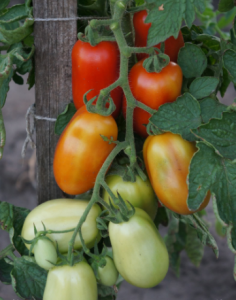
- Mid-season, the term of ripening of fruits from germination of seeds from 110 to 120 days.
- The determinant type grows from one to two meters.
- Does not form side shoots, does not require staking.
- Fruits are collected in brushes of 10-20 pieces.
- High yield: you can get up to 6 kg from a bush.
- Suitable for growing indoors.
- Requires support and garters.
- Ideal for harvesting and canning.
Let's take a closer look at the French Manure tomato, the characteristics and description of which are detailed below.
Characteristic and description
Description of the bush
This type of tomato has a big and strong bush. In greenhouses, it can reach two meters. Some gardeners called him "long-playing," for the ability to give fruit a very long time.
But in the southern regions pasynkovat not required, with sufficient nutrition bush will bear fruit until late autumn.
Garter to the supports necessary in the greenhouse and in the open field.
Fruit Description

- The fruits of the French grasse tomato are graceful in appearance, similar to "cream", "icicles", "ladies' fingers", as gardeners write, in one word - an interesting shape.
- Elongated, medium size, weighing from 40 to 100 g.
- Tomatoes are red, smooth, shiny.
- The skin is dense, contributes to long-term storage and transportation at a distance.
- The flesh is compacted, sweetish, with ripe fruit, voids can be observed in the chambers.
- They ripen well, do not dry out and do not lose their taste.
- Perfect for all types of blanks: well fill the banks, thanks to the favorable shape, look great in canned food, especially in assorted.
Disease and Pest Resistance
Like all newer varieties that have good immunity to diseases, the French Manure variety is resistant to viruses and pests.
But hope for its sustainability and not to engage in prevention, of course, is not worth it.
Following simple rules, your tomatoes will forget about the problems. Prevention is:
- in regular spraying with solutions for diseases and viruses;
- airing the room after watering and during the day;
- from pests helps tincture of garlic, yarrow, wormwood and celandine.
See also: Choosing heat-resistant tomatoes for the south of Russia
The advantages and disadvantages of the variety
Studying the characteristics of the variety "French Manure", one can say that he has more advantages than disadvantages. What are they?
Pros:

- High yield. From one bush can be collected from 3 to 6 kg of tomatoes. There is evidence that with special care in a good greenhouse 10 kg were collected from a single plant.
- On one square meter two plants are planted in the greenhouse, as the plant needs lighting and a lot of space.For some, it’s a pity to have a place in the greenhouse, and someone will calculate that two bushes are enough to get two buckets of cool tomatoes. In the open ground planted 3-4 bush per meter.
- Beautiful-looking "fingers" are tasty, they ripen in a brush together, can be stored for up to two months. Ripening, do not lose their taste and shape. And this is a big plus. You can shoot a whole bunch of brown tomatoes, giving rise to other fruits. It will be easier for the bush to grow the following brushes, which will increase the yield. This allows you to start canning at the end of July, as the first brushes ripen at this time.
- Tomato is considered pickling, but it is delicious in salad and in cooking. It is easy to remove solid skin from it for cooking any dishes where it is fully revealed, as there is little liquid and a lot of sugars in it, and due to its fleshiness, it behaves well in a vegetable stew, during frying, in a salad and on a brazier. It is better not to find a grade for baking: it perfectly retains its shape after heat treatment and when the skin is removed. It turns out great sauces and harvesting "tomatoes in tomato".
- Some do not like his dryness in ripe fruit inside. But for many it is a plus! Now popular harvesting dried tomatoes. And again, the “flaw” seems to be turning into a virtue for those who are looking for tomatoes for such storage. For drying it is perfect.
- Late-ripening variety. This is not a plus or a minus. It is necessary to take into account the growing region. In the northern territories the variety grows well, but it is necessary to complete its growth in early August. It is necessary to pinch the top and not give new stepchildren grow. This is done so that the rest of the ovary can be poured and give the harvest until the end of August, so that the tomatoes will not hit the blight.
- Does not require staking. This point is again twofold. He works in the southern regions, where there is a long summer, and on the stepchildren, no matter how many, have time to ripen the fruits. No wonder farmers in the Kuban region call this variety “long-playing”.
- Perfectly tolerate transportation to any distances collected by brown, ripen well and quickly, preserving and even improving the taste. This item is a big plus for those who will grow a variety for business. It is sold on the "Hurray" due to its attractive appearance and form.
- Resistant to major viral diseases, thanks to a good immune system.
- You can collect your seeds.
The disadvantages of a stretch include several points:
- Require mandatory support and garters. But almost all varieties more than 50 cm tall require support, therefore, with a minus, you can argue.
- Not suitable for outdoor in the middle lane and northern areas. So, it is necessary to plant it in those regions only in greenhouses.
Summing up, we conclude: if you deliberately chose a variety of tomato “French Manure”, then you will not find any minuses in it!
See also: Why do tomato leaves turn yellow in the greenhouse and how to deal with it?
Features of growing varieties
 Tomato "French Manure" does not require special conditions, it is considered unpretentious, but one should not let it grow on its own, as well as other varieties. In order not to be disappointed with the yield, which can reach up to 10 kg, you need to follow simple rules.
Tomato "French Manure" does not require special conditions, it is considered unpretentious, but one should not let it grow on its own, as well as other varieties. In order not to be disappointed with the yield, which can reach up to 10 kg, you need to follow simple rules.
Soak the seeds before sowing for an hour in a solution of potassium permanganate. Sow 65–70 days before the estimated date of transplanting to the ground. Seeds are sown in low boxes with ready light ground.When two true leaves appear, the seedlings swoop into cups, and so that the seedlings and the seedlings do not stretch, they observe the temperature and light conditions.
 Watering the seedlings is moderate, loosening the soil and feeding with potash and phosphorus fertilizer alternately every two weeks. It is important for the formation of the root system and healthy foliage.
Watering the seedlings is moderate, loosening the soil and feeding with potash and phosphorus fertilizer alternately every two weeks. It is important for the formation of the root system and healthy foliage.
When a seedling has 5–6 leaves, it is necessary to shed it with a solution of the “confidor” preparation for protection against pests.
Planting in the greenhouse takes place in mid-May, when the soil warms up to at least 17⁰.
The well should be well dredged and prepared accordingly: humus not less than a liter, ash from straw or grass of 1 l and a handful of mineral fertilizers such as azofoska or superphosphate.
Immediately prepare everything for watering and garters: the bush is powerful, so the stake or trellis must be reliable. Spill at least 5–6 liters with warm water and mix.
What does mulch give?
- no peel after watering;
- no weeds;
- roots are not laid bare;
- moisture is preserved;
- observed temperature at the roots.
After planting seedlings, it remains to apply a little secrets, and then we get the harvest from healthy plants.
Watering is not often: once a week, but plentifully, using only warm water.
Another secret: this is a shake-up of plants for pollination: this contributes to the tying of all flower stalks.
You will be interested in: When to plant tomatoes for seedlings in 2018?
It is important to tear off not only the extra stepchildren, forming 3 or 4 trunks, but all the lower leaves up to the first brush gradually, one sheet per week.
Organic matter for plants is needed only during the growth period, and during the fruiting period - it is impossible to contribute!
 Therefore, all fertilizing organic do while tomatoes grow and bloom. Together with root dressings, spraying with microelements is effective 1 time in 7 days in cloudy weather or late afternoon: 1 teaspoon of urea per 10 liters of water, potassium nitrate in the same proportion. Alternating these supplements, you will be pleasantly surprised, watching the plants respond with green healthy foliage and a mass of ovaries.
Therefore, all fertilizing organic do while tomatoes grow and bloom. Together with root dressings, spraying with microelements is effective 1 time in 7 days in cloudy weather or late afternoon: 1 teaspoon of urea per 10 liters of water, potassium nitrate in the same proportion. Alternating these supplements, you will be pleasantly surprised, watching the plants respond with green healthy foliage and a mass of ovaries.
When the majority of the fruit is formed, stop feeding all, and reduce watering at times.
This is a small farewell, which we gave you to care for the French Grangey tomatoes, as well as reviews, tips and photos of growing it, will help you grow a decent crop.
Good luck on the fertile beds!
Video: French Grape Tomato


